State Budget Update:Now you see it… now you don’t
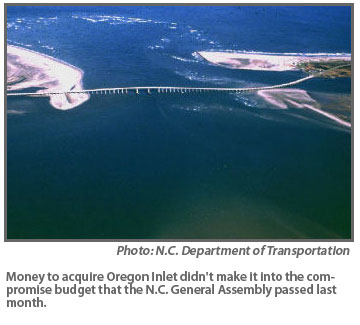
Like all state budget bills, what’s not in the final deal is often just as important as what is. In the case of the 2014 legislative session, the budget passed last week has some significant no-shows.
The legislative committee that devised the compromise budget that Gov. Pat McCrory signed earlier this month got rid of a proposed sale of Jennette’s Pier in Nags Head, which had been added by the N.C. House. Also stripped from the bill were additional job positions for the state Department of Environment and Natural Resources to manage coal ash monitoring and clean-up, one of the top goals named by legislative leaders going into the session.
The collapse of the heavily-promised coal ash plan at the last minute is one reason the House and the Senate changed course, deciding not to close up shop before a new legislature takes over next January.
For now, both chambers are on hold after failing to agree on the scope of what they would take up in two mini-sessions, one starting next week and the other scheduled after the November elections. House leaders want to revisit the coal ash bill as soon as possible, but the Senate prefers to wait until November.
Meanwhile, a federal appeals court has complicated implementation of one of the budget’s major provisions. A ruling by the Fourth Circuit Court of Appeals remanded a challenge to state Department of Transportation’s plans for a replacement for Bonner Bridge back to district court requiring a stricter review of the impact of the project.
While both sides in the legal fight are claiming partial victory, the ruling appears to run counter to a provision in the budget calling for state ownership and management of Oregon Inlet that included a loosening of environmental reviews for transportation infrastructure along Highway 12.
Grady McCallie, policy analyst for the N.C. Conservation Network, said the missing pieces of the budget are significant, especially the coal ash funding because both House and Senate had agreed to at least $1.7 million for the additional work. Because an alternative coal ash bill has yet to pass, DENR has no money to implement a significant program.
“Right now, there’s nothing,” McCallie said. “There are no resources providing for coal ash monitoring.”
Other significant items proposed but left out, McCallie said, included about $10 million for land conservation. A House plan proposed $7 million in additional money for the N.C. Clean Water Management Trust Fund and $3 million for the state parks trust fund for conservation purchases.
While that provision is not in the bill, the budget does set aside $3 million for the expansion of Hammocks Beach State Park.
“Hammocks Beach is a great project,” McCallie said, “but it’s not a substitute for that kind of money statewide.”
Oregon Inlet Redux
By far the most extensive provision in the budget deals with the expansion of state powers, ownership and management over Oregon Inlet on the Outer Banks. The channel through notorious waterway between Bodie and Hatteras islands in Dare County has become increasingly more difficult for dredges to keep open for boat traffic.
The legislature created a task force, which recommended that the state acquire the inlet and adjacent land. With the land in hand, the state would then presumably take steps to control shoaling in the inlet, such as resurrecting the old plan to build jetties on either side of it. The federal government now owns the land, which is part of a national seashore and wildlife refuge, and claims ownership of submerged land in the inlet. It killed the jetty proposal in 2003 after decades of debate.
The project enjoyed the full-throttled support of Sen. Harry Brown, R-Onslow, the Senate’s chief budget negotiator. Brown said earlier in the session the acquisition plan was necessary because of declining federal support for dredging and management of the inlet.
The Senate set aside $15 million in its budget for the project, but the House’s version had no money for the project. The compromise budget contains some money for planning and legal fees and instructs the N.C. Department of Administration to start negotiations with federal agencies to acquire the inlet and surrounding lands for a future Oregon Inlet State Park.
Sen. Bill Cook, R-Beaufort, who had sponsored a separate bill to acquire the inlet, said the compromise budget still represents a significant commitment by the state. “The economic impact of Oregon Inlet is very significant and far outweighs the costs necessary to keep the inlet passable,” Cook said in a statement.
Cook said he has been assured that the additional state money for the purchase will be made available.
The Outer Banks provision is not limited just to the inlet. It requires the state Department of Transportation to identify a coastal transportation corridor authorizes the state to start condemnation proceedings on July 15, 2015 of any federal lands required to keep the corridor open and grants the governor emergency powers including the right to waive required environmental permits to keep the corridor infrastructure maintained.
When the provision was first introduced earlier in the session, environmental groups said language extending the emergency powers to cover replacement and repair projects would be used to push ahead on a replacement for Bonner Bridge.
This week’s federal appeals court decision could make that tougher.
McCallie said most of the state environmental laws that NCDOT would be allowed to bypass are in place to enforce federal requirements.
“They line up with federal requirements and [NCDOT] can’t change those requirements,” he said.
Kym Hunter, an attorney with the Southern Environmental Law Center and part of the team representing wildlife and environmental groups, said the fourth circuit’s unanimous ruling represented a major change in the case.
“It’s very significant,” she said of the ruling. The order, she said, requires the lower court to go back and take into account more stringent standards while reviewing the bridge plan which means reviewing the impact of new infrastructure throughout the wildlife refuge, not just around the bridge itself.
“These are substantive requirements,” she said, “not just procedural hoops to jump through.”
Hunter said she hopes DOT managers use the ruling as an opportunity to rethink the plan.
A DOT statement on the ruling posted on the N.C. 12 project Facebook page downplayed the impact of the ruling, which upheld critical portions of the DOT plan while sending it back to the lower court for review.
“NCDOT, the Attorney General’s Office and Federal Highway Administration are jointly reviewing the next steps required to deliver the project as soon as possible,” the statement said.
Other Provisions
The budget also settles for now a dispute between the House and Senate over the state entering into agreements with federal agencies for joint enforcement of marine fisheries regulations. The new agreement adopts a House plan allowing for the enforcement agreements.
The budget also sweeps interest accumulated in several environmental funds, including the N.C. Clean Water Management Trust Fund and clean air and water funds into the General Fund.
Other provisions and adjustments include:
Adding enhancement of the state’s cultural resources to the mission of the Clean Water Management Trust Fund
Increasing commercial fishing licenses from $250 to $400, shellfish licenses from $31.50 to $50 and hikes various other fees and licenses for vessels and fish seafood dealers. The additional funds would go to the At-Sea Observer program and a new N.C. Commercial Fishing Resource Fund to cover the annual cost of permits to meet the requirements of the federal Endangered Species Act. Additional funds would go toward improvements for the fishing industry and are to be distributed by a committee made up of representatives of the N.C. Fisheries Association, N.C. Watermen’s Association, Ocracoke Working Watermen’s Association, Brunswick County Fishermen’s Association, Carteret County Fishermen’s Association and Albemarle Fishermen’s Association.
Requiring a study by the UNC Coastal Studies Institute near Manteo of the state’s shellfish lease and franchise program with a report to the legislature on ways to improve mariculture efficiencies and outcomes due March 1
Adding lake maintenance to the uses for a shallow draft dredging fund set up last year to provide matches for inlet dredging. The money has been earmarked for Hydrilla control at Lake Waccamaw
Shifting the primary responsibility for managing Roanoke Island Festival Park from the Roanoke Island Commission to the N.C. Department of Cultural Resources. Employees of the commission are to be transferred to the state and the park would see a 2 percent budget cut
$3 million in state bonds for as the state’s match for $13 million in hull repairs for the USS North Carolina
$75,000 grant to Emerald Isle for a new park to honor the late Sen. Jean Preston
Reducing state funding for the N.C. Ferry Division by $1.5 million or roughly 4 percent. A separate provision allows the division to initiate sponsorships and advertising to increase revenue.
(This story is provided courtesy of Coastal Review Online, the coastal news and features service of the N.C. Coastal Federation. You can read other stories about the North Carolina coast at www.nccoast.org.)




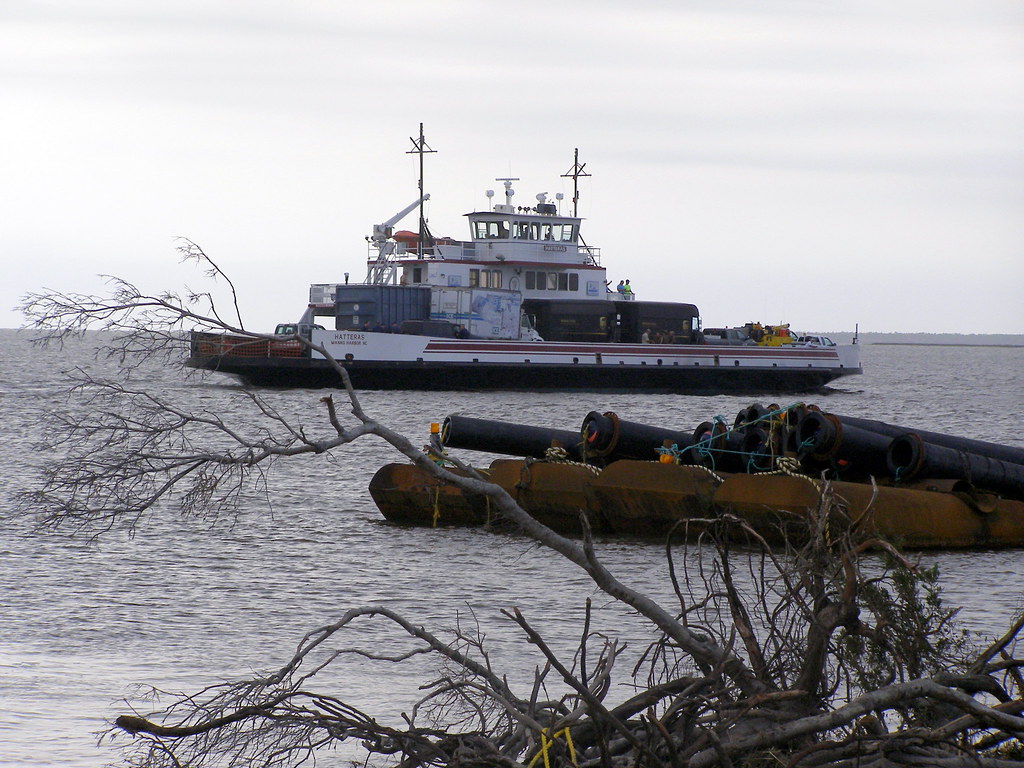





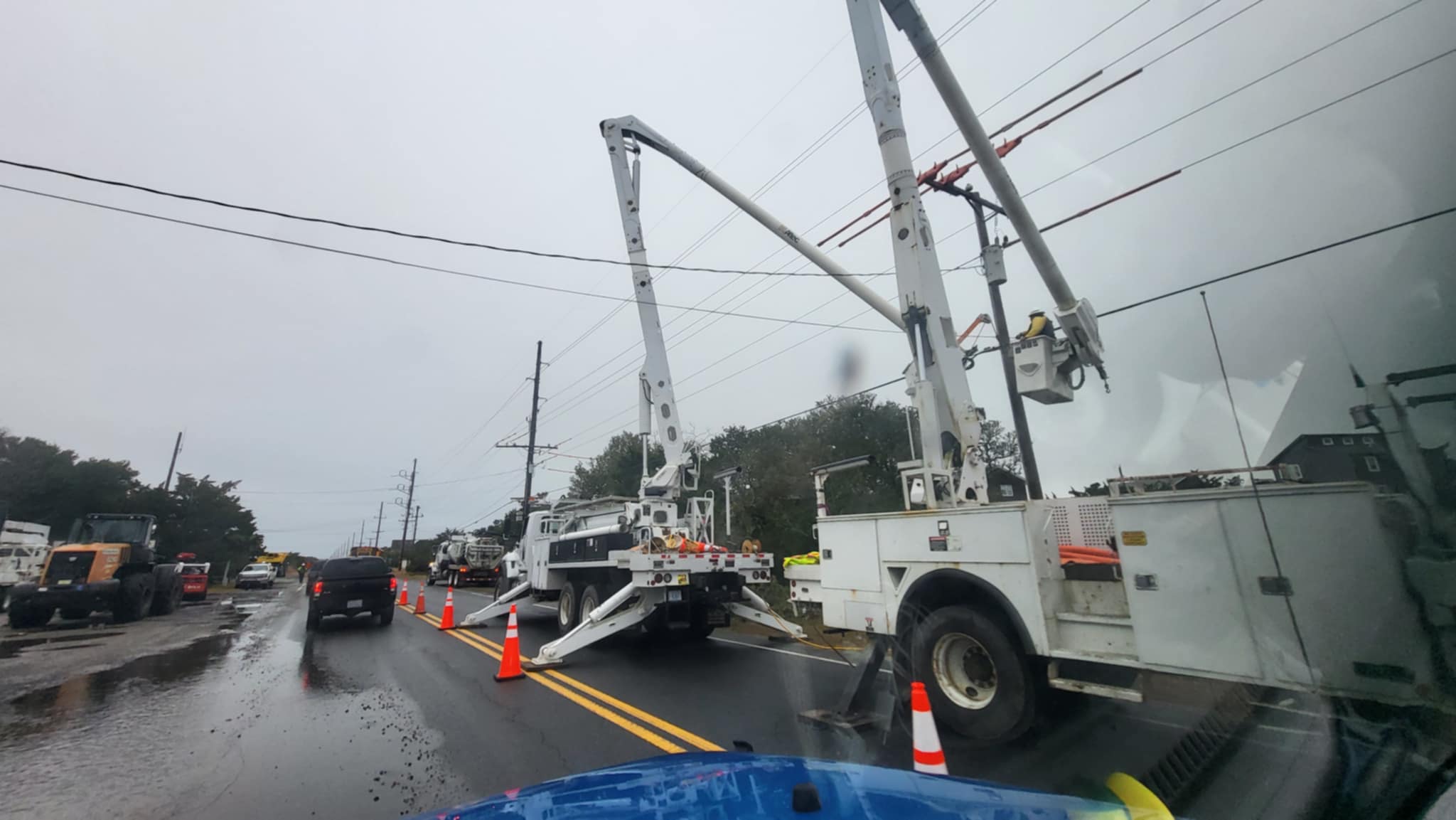
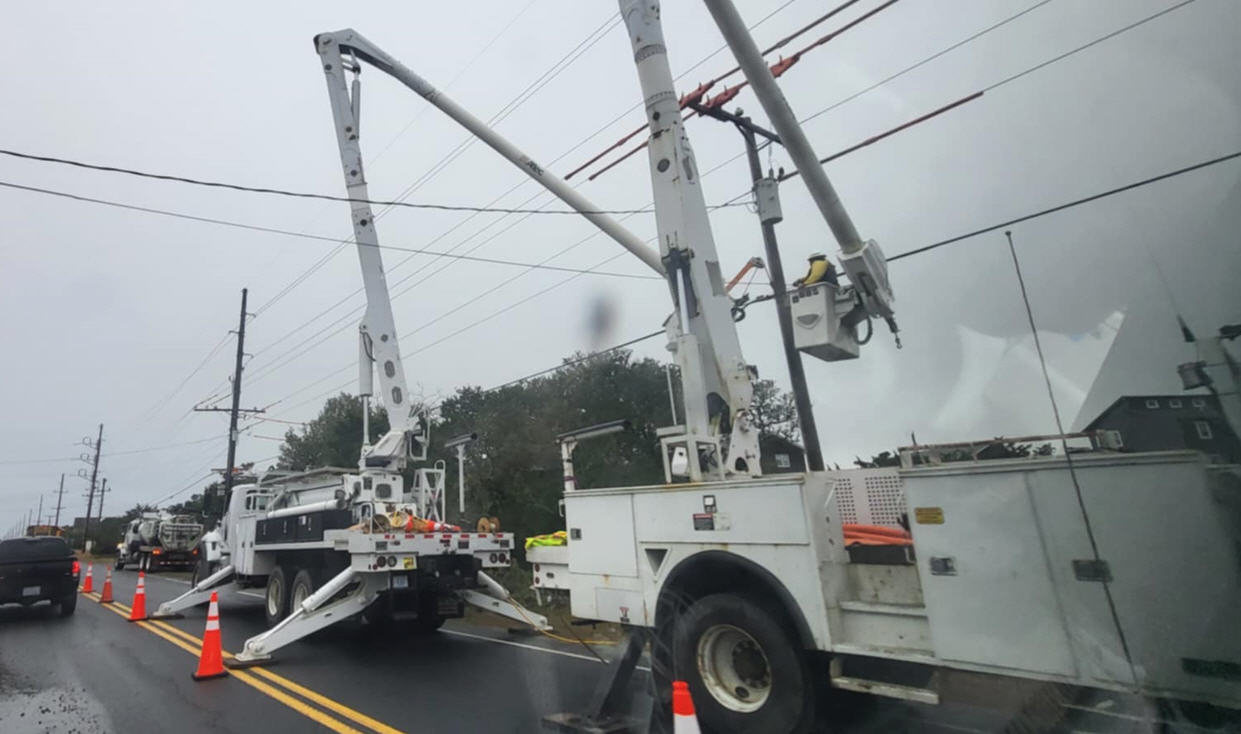
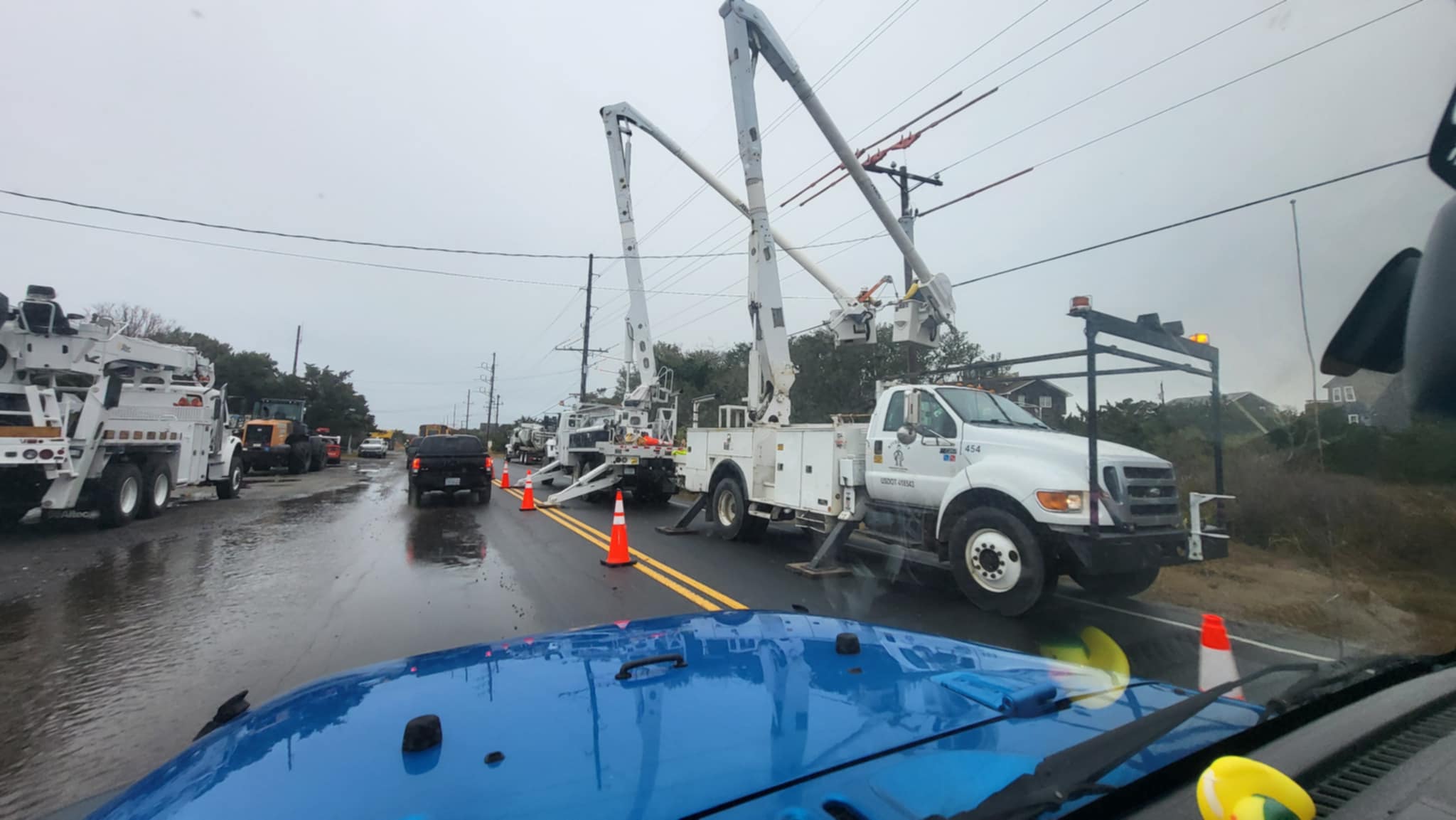
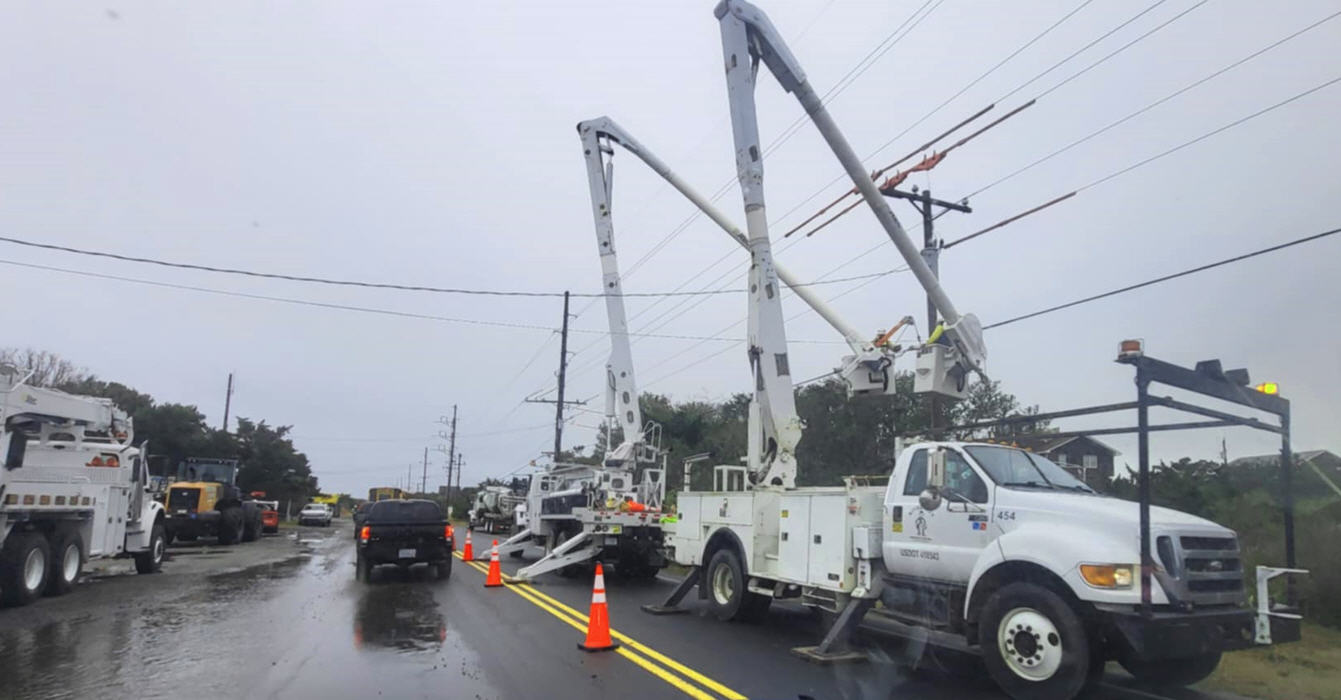
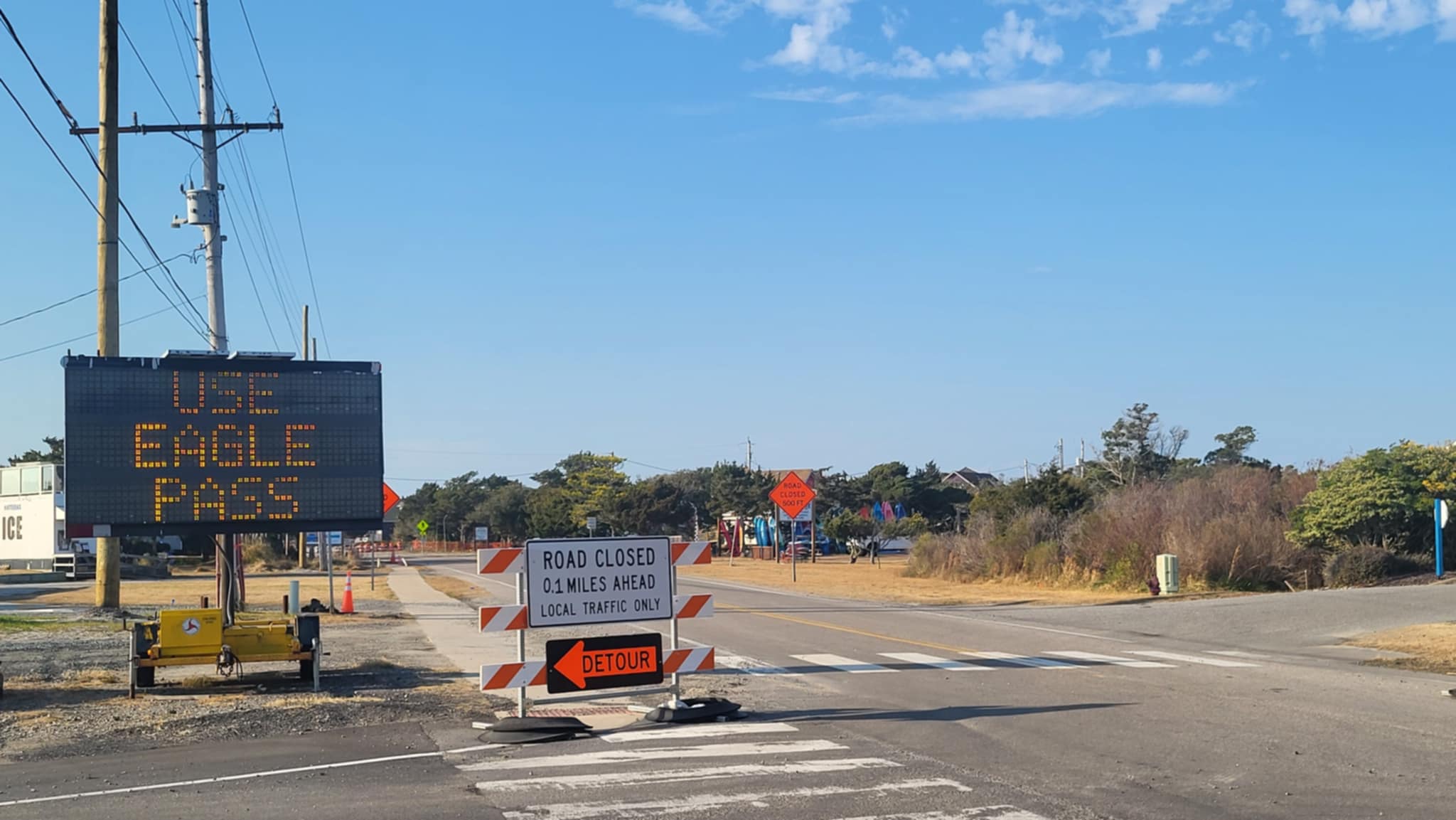
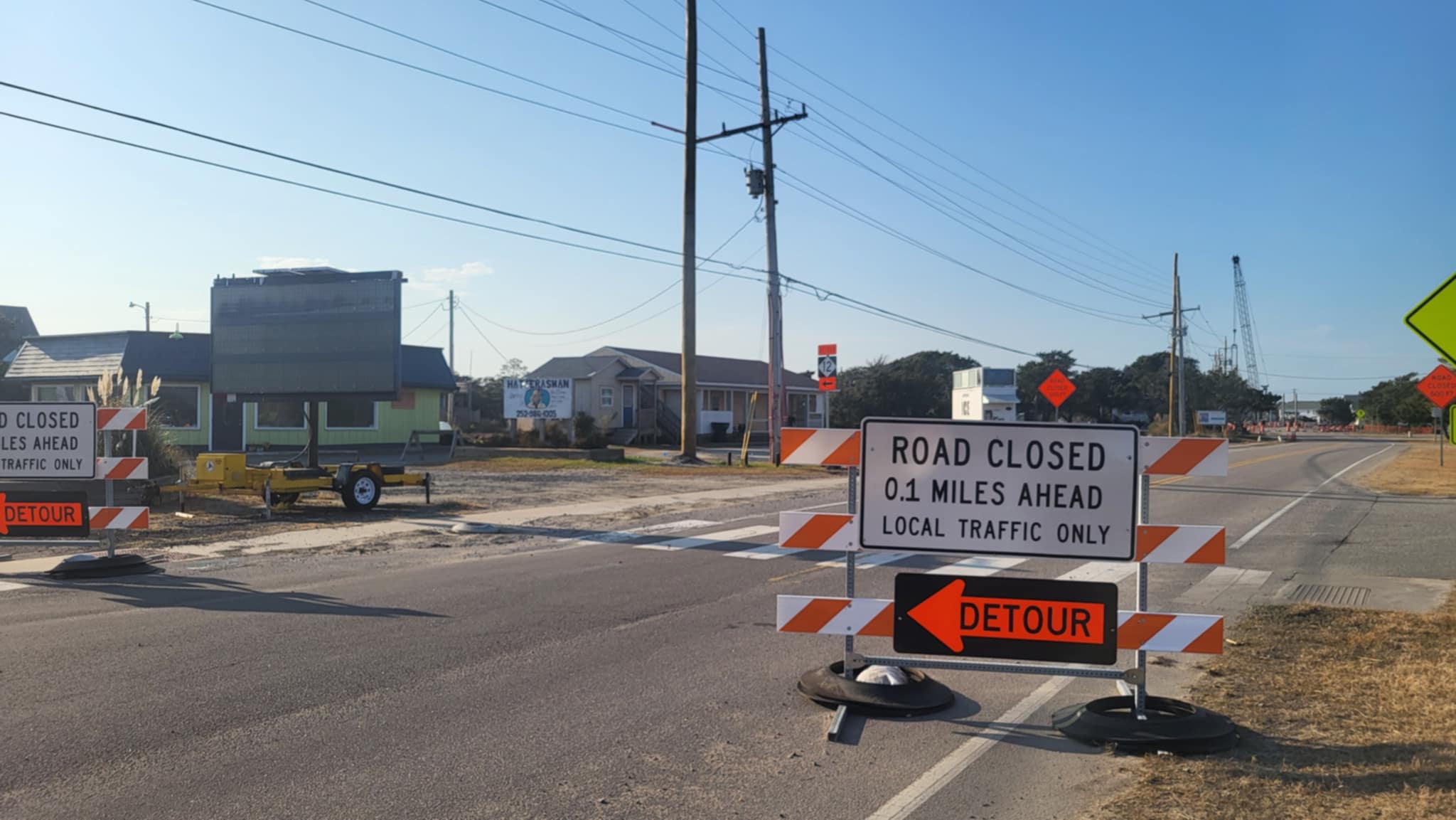
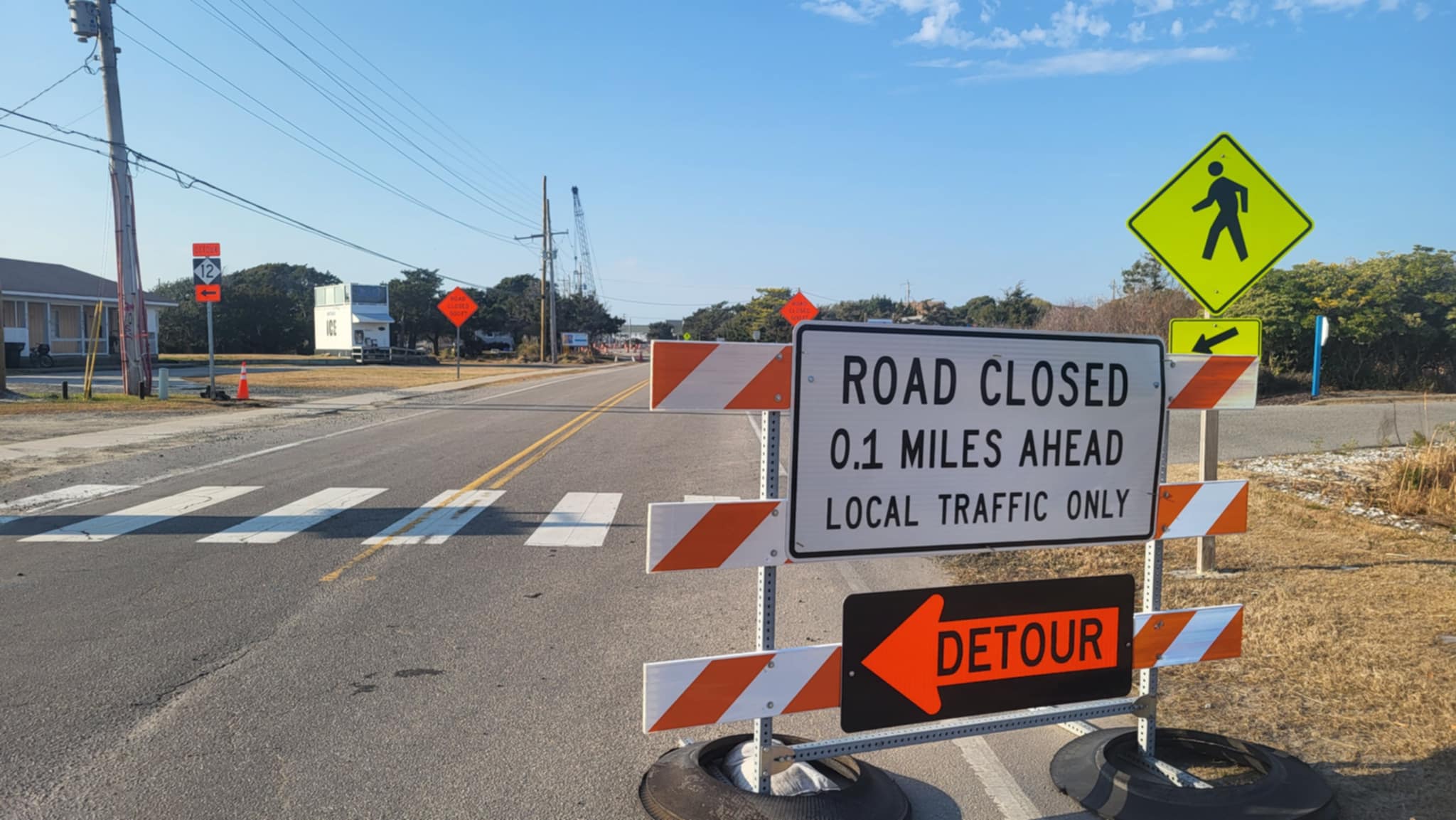

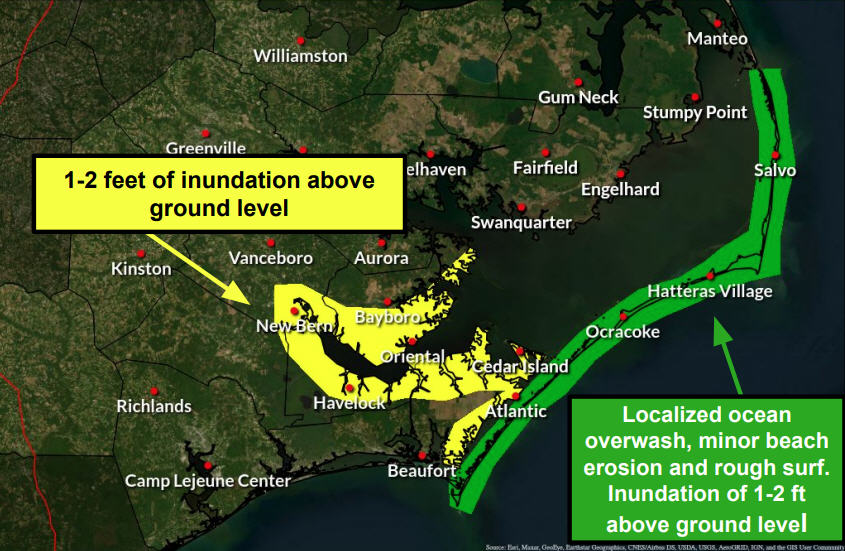
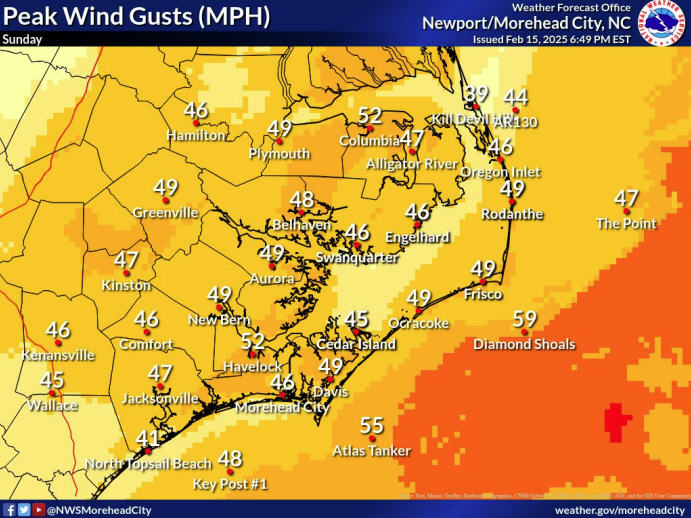


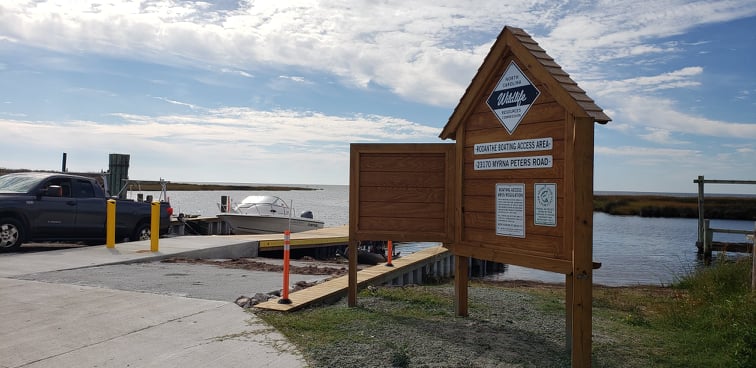



 IFP Trucker Hat - White/Aluminum/Navy
IFP Trucker Hat - White/Aluminum/Navy